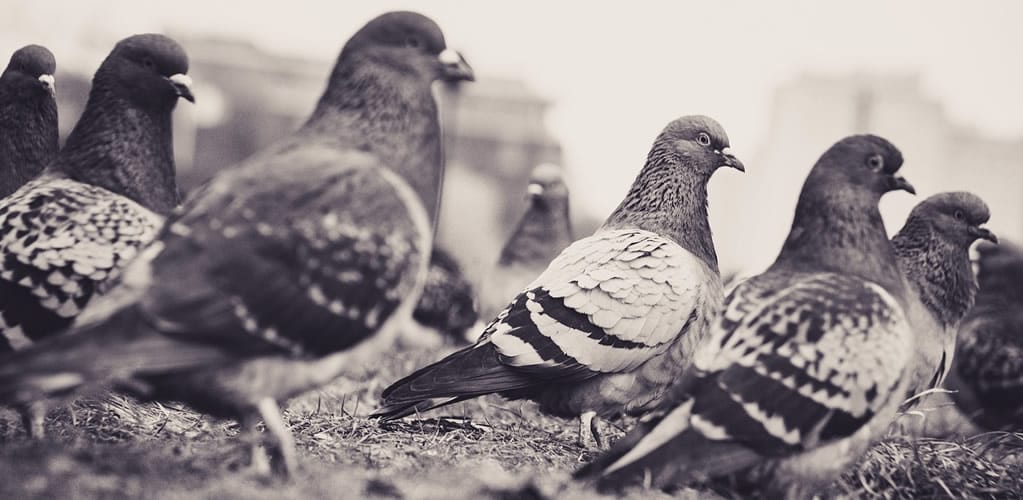UK bird flu outbreak: Risk of wider infection in the general public remains low.
The views of experts and health professionals on a confirmed case of avian influenza (H5N1) in a person in the South West of England, which the UK Health Security Agency says there is so far no evidence of spread of the infection.

The views of experts and health professionals on a confirmed case of avian influenza (H5N1) in a person in the South West of England, which the UK Health Security Agency says there is so far no evidence of spread of the infection.
First published in January 2022.
WHAT THE AUTHORITIES SAY...
Professor Isabel Oliver, Epidemiologist, Chief Scientific Officer, UKHSA:
“Currently there is no evidence that this strain detected in the UK can spread from person to person, but we know that viruses evolve all the time and we continue to monitor the situation closely.
“We have followed up all of this individual’s contacts and have not identified any onward spread.
“It remains critical that people do not touch sick or dead birds, and that they follow the Defra [Department for Environment, Food and Rural Affairs] advice about reporting.”
Follow Professor Isabel Oliver
Dr Christine Middlemiss, UK’s Chief Veterinary Officer:
“We are seeing a growing number of cases in birds on both commercial farms and in backyard flocks across the country. Implementing scrupulous biosecurity measures will help keep your birds safe.”
Follow Dr Christine Middlemiss
Unlimited access to fact-based analyses, thought-provoking opinions, and expert advice.
Support PMP Magazine todayWHAT THE EXPERTS SAY...
Dr Holly Shelton, Head of the Influenza Viruses Group at The Pirbright Institute:
“The identification of a human case of the avian strain of H5N1 influenza virus is rare but has happened in the past.
“The UKHSA has stated this infection was the result of prolonged contact with a large number of infected birds. These circumstances that have resulted in the infection of this individual directly from birds is the common mechanism when human cases of H5N1 are identified in other countries. A large infectious dose is required to infect a human with an avian influenza virus as there are significant barriers that the virus must overcome in order to establish infection. Human to human transmission of H5N1 avian influenza viruses are extremely rare and there is nothing in the genetic makeup of the most recent H5N1 avian influenza strain reported in the UK that suggests this virus would be capable of efficient and effective human to human transmission.
“Birds and humans are very different and influenza viruses must adapt and change in order for avian viruses to establish transmission in humans. The proteins that the virus interacts with inside the infected cells are different in humans and birds and, consequently, avian viruses find it hard to replicate themselves in humans. In addition, the behaviour of humans and birds means the transmission routes are different as well with water carrying faecal matter playing a large role in the transmission of avian influenza between birds, whilst between humans, transmission via droplets in the air to the common transmission mechanism, again the virus must alter itself to facilitate the different transmission modes.”
Professor Paul Wigley, Professor of Avian Infection and Immunity at the University of Liverpool:
“Whilst avian influenza has the potential to be transmitted from poultry to humans it is very rare and, as in this case, usually due to close and long-term contact with infected birds.
“Avian influenza such as the H5 serotype is largely adapted to infect birds and so is very unlikely to be transmitted from person-to-person. The advice given by APHA and UKHSA over contact with infected birds is sensible and should be followed. The risk of wider infection in the general public remains low.”
Get TODAY IN COVID in your inbox every day to better understand what happens next with the pandemic.
Become a PMP member todayProfessor Ian Jones, Virologist at the University of Reading:
“Transfer of avian flu to people is rare as it requires direct contact between an infected, usually dead, bird and the individual concerned. It is a risk for the handlers who are charged with the disposal of carcasses after an outbreak but the virus does not spread generally and poses little threat. It does not behave like the seasonal flu we are used to.
“Despite the current heightened concern around viruses, there is no risk to chicken meat or eggs and no need for public alarm.”
Follow the University of Reading
Professor Mike Tildesley, Professor in Infectious Disease Modelling at the University of Warwick:
“This is clearly going to be big news but the key thing is that human infections with H5N1 are really rare (fewer than 1,000 worldwide since 2003) and they almost always occur as a result of direct, long term contact with poultry. It can result in a nasty infection for the individual concerned but there has never been any evidence of sustained human to human transmission of H5N1 so at present I wouldn’t consider this to be a significant public health risk.”
Follow Professor Mike Tildesley

— AUTHORS —▫ PMP News reporting. |
GET THEM INVOLVED: |
Sources
- Text: This piece was first published in PMP Magazine on 6 January 2022.
- Cover: Pixabay/wal_172619. (Licensed under a Creative Commons Attribution-ShareAlike 4.0 International License.)







[Read our Comments Guidelines]